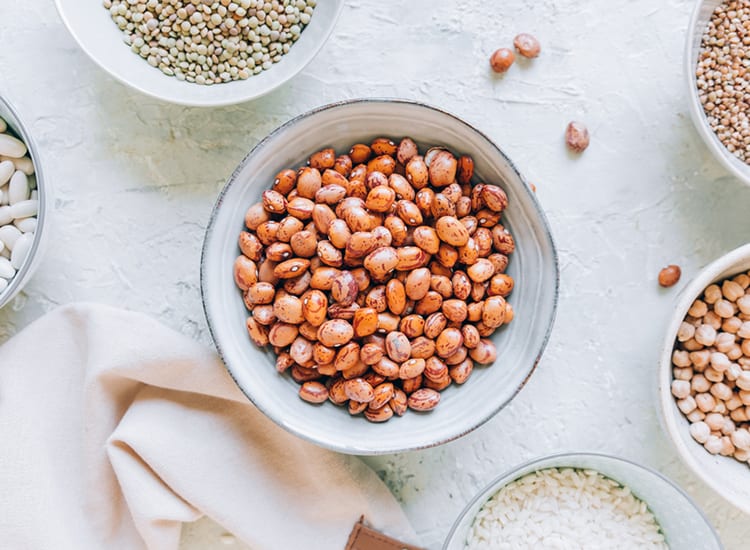Clean 21 Gut Health Detox
Our Signature 21-Day Full-Body Reset for Longevity
Questions? Ask about this product
Free Shipping On Orders Over $50
Complementary products


As most vegetarians and vegans know, the number one question usually asked is, “How do you get your protein?” As long as a healthy diet full of a variety of foods is maintained, including the right vegetables, finding vegetarian sources of protein isn’t a struggle.
The daily recommended intake for someone who exercises moderately would be anything from 0.36 – 0.45 grams for every pound of weight. Most vegetables, beans, grains, nuts, and seeds contain at least some protein, and by infusing them into our diet every day, we’ll be able to hit our recommended protein intake without worry.
We highly recommend our Daily Shake for most vegetarians, but especially if we’re upping our exercise levels or feel like we need a protein boost. Here are some of the top protein-rich foods for vegetarians:
Lentils are a fantastic source of protein and so delicious to add to stews, curries, and soups. Lentils contain 9 g of protein for every 100 g, so they’re an excellent filling solution to complete our vegetarian or vegan diet. Additionally, their density helps us stay feeling full for hours after a meal.
Opting for lentils comes with a ton of added health benefits, like helping to protect our digestive system with their high-fiber intake. Pulses also aid in stabilizing blood sugar.
When eaten in their natural state, most beans, without additional sources and garnishes, are low in fat and cholesterol, making them a great option to get good quality protein. A half-cup of beans contains approximately 7 grams of protein, which is about equivalent to eating an ounce of chicken or fish. Try adding beans to your next Meatless Monday, or even adding them to a soup or stew recipe.
Quinoa is essential for a vegetarian diet, as it’s one of the few plant proteins that actually is a complete protein, as it contains all 9 of the amino acids. It’s a gluten-free grain, so it’s great for those who are gluten-intolerant or gluten-sensitive people. However, it still contains many benefits that you would receive from eating whole grains, plus a bonus of extra antioxidants.
It’s rich in iron, B-vitamins, magnesium, potassium, calcium, vitamin E, fiber, and much more. We can be sure that we’re checking a lot of boxes on the dietary scale when we opt for quinoa. Quinoa can be substituted in many meals for rice or potatoes to give us a complete protein that tastes delicious in various meals.
Broccoli is an unexpected source of protein. As a green vegetable, it seems that unlikely that it contains a substantial amount of protein, but this choice of veg packs a serious punch.
Many documented studies show that broccoli consumption can be a preventative measure for high cholesterol. Steaming broccoli to add to our dinner plate or even packing it up fresh to take it on the go is a quick and easy way to add to our diet. So keep those green stalks close at hand.
Edamame is a delicious snack and an excellent source of protein. For gluten intolerant people, it’s also a perfect choice as it’s gluten-free yet rich in many other nutrients. It’s also a natural source of calcium and iron, which many vegetarians look to supplement to boost iron levels.
The naturally occurring folate in edamame is linked to decreased symptoms of depression, allowing better production of feel-good hormones like serotonin and dopamine, which help boost our mood. It’s easy to quickly boil up a batch of edamame to take on the go as a delicious snack or serve guests as appetizers.
Proteins aren’t naturally created in the body, so it is essential to ensure we’re getting protein from food sources. Most plant proteins have amino acids, but not ALL amino acids, so by diversifying our food choices, we’re helping ensure we get a good balance of the different strains of proteins our body needs.
Written by Reese Evans
If you like this article, you might also like A delightful bibimbap for vegetarians